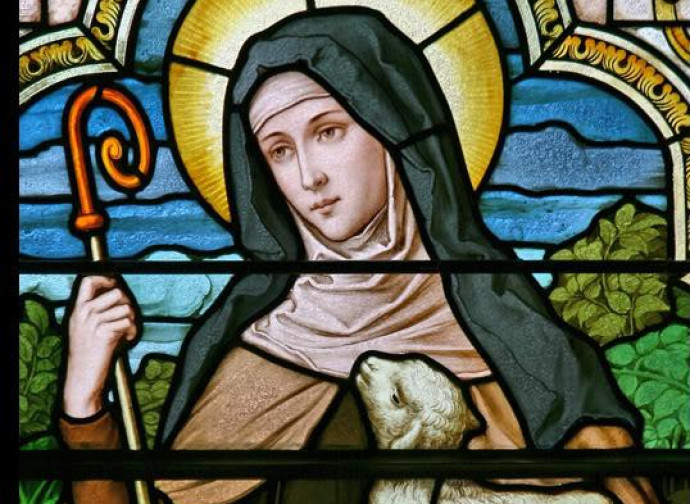Saint Colette of Corbie
In addition to being remembered for her mystical gifts, Saint Colette (1381-1447) is famous for founding the Order of the Poor Clares, known as "Colettines", inspired by her desire to return to the original austerity of the Rule of Saint Clare.

In addition to being remembered for her mystical gifts, Saint Colette (1381-1447) is famous for founding the Order of the Poor Clares, known as "Colettines", inspired by her desire to return to the original austerity of the Rule of Saint Clare. She was born in Corbie, in Upper France, to two humble and very devout parents, who had baptized her with the name of Nicolette in honour of Saint Nicolas, after having asked for his intercession because they were unable to have children. Tradition has it that the little girl, familiarly called Colette, was born when her mother Margherita was 60 years old. From her mother, Colette learned the beauty of meditating on the Passion of Christ and from early childhood she dedicated herself to prayer and mortification, fasting to distribute food to the poor.
At the age of 18 she was orphaned, renounced her possessions and within a short time went from being a Beguine to becoming a Benedictine nun, but in both cases she was unable to find the rigorous model of life she hoped for. She then entered a convent of Urbanist Poor Clares, so called by the Rule approved in 1263 by Urban IV, which mitigated the Rule of Saint Clare by allowing the nuns to possess goods in common. Even among the Urbanists she did not find what she was seeking, so she accepted the proposal of Father Jean Pinet, a fervent Franciscan, who offered her the option of a strictly cloistered life as a tertiary. Thus she lived for four years in a room adjacent to the parish church of Corbie, where she had a vision of Saint Francis presenting her to God as the reformer of his Order, alongside other visions that she did not initially believe. She was struck by blindness and mutism, until she accepted her mission and was healed.
In 1406 she was authorised to found reformed monasteries in three French dioceses, through a bull of the antipope Benedict XIII. Colette was in fact born and raised in full Western Schism, which began in 1378 following the death of Gregory XI, the pope who the previous year, backed by the decisive exhortation of Saint Catherine of Siena, had brought the Holy See back to Rome, putting an end to almost seven decades of Papal Captivity in Avignon. The Western Schism, which over the years became a quagmire that put the Church under severe pressure, was not concluded until 1417, when the Council of Constance declared John XXIII (Baldassarre Cossa) and Benedict XIII (Pedro de Luna) antipopes, and agreement was reached on the election of Martin V, who brought unity back to the Catholic Church. So Colette lived during this period of crisis for the faith, which generated among other things a relaxation of monastic discipline, and worked to recompose the schism, joining her forces with those of the Dominican Saint Vincent Ferreri.
The first monastery of Colettine Poor Clares was founded in Besançon in 1410, one of 17 founded directly by the saint. The Constitutions that she added to the Rule of Saint Clare were approved in 1434 by the Minister General of the Friars Minor and ratified by Pope Pius II in 1458. Saint Colette (canonized by Pius VII in 1807) transmitted to her sisters a spirit of fasting, penance and poverty, giving great importance to liturgical prayer, borrowed from the Benedictine Order. She received innumerable graces, from ecstasies to the apparitions of angels, from the gift of prophecy to the fragrant scents that emanated from her body and the things she touched, to the momentary resurrections of new-born babies to enable them to receive Baptism. She also received heavenly revelations about the state of souls in Purgatory, for whom she prayed continuously. Her reform was also adopted for a while by some male convents, while her influence on the Poor Clares continues to this day.
